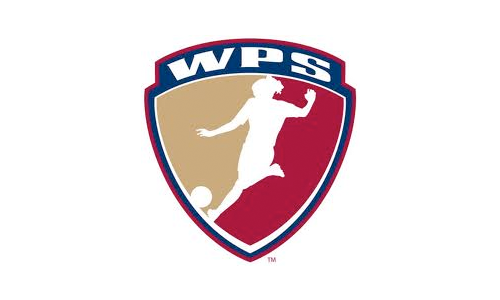Before last week’s announcement of the cancellation of the 2012 WPS season, it was widely reported that the league and magicJack owner Dan Borislow had reached an agreement to settle their ongoing legal battles that would involve his team playing a series of exhibition games against WPS teams.
While those reports made clear that any settlement was contingent upon the approval of US Soccer, it appears now that US Soccer and FIFA rules would have prohibited any exhibition games involving non-league magicJack playing WPS teams.
Never a deal
Atlanta Beat owner Fitz Johnson said last week that a “settlement” was never approved.”It was a confidential deal that had some hurdles to be achieved prior to it being approved, and it wasn’t, so the deal was off. It was never approved. If the deal was approved, then the deal would have been settled. There were several folks that needed to put their stamp of approval on it—the court, Mr. Borislow, the owners—everybody would have to agree.”
Borislow disagrees and said last week, “I have a deal with the WPS and I expect for both sides to follow through on it.”
Borislow’s expectations aside, Halstead said there were never anything more than discussions about possible exhibition games.
“Over the past several months, there have been a lot of prospective and potential arrangements and discussions and settlements and deals between the League and magicJack,” said Halstead. “When I read them in the news, some of them were accurate from what we were hearing at the Board level and some of them were very inaccurate. A deal where there’s exhibition games against magicJack, I don’t know much about a deal like that.”
Halstead detailed a number of considerations—among them game location, insurance and travel cost considerations, concession splits, marketing costs—that would make exhibition games not cost-effective or feasible.
“I was never faced with those questions,” Halstead said, “because there’s nothing like that that ever materialized from a standpoint of something we needed to analyze as a real settlement option.”
League says US Soccer does not approve
In a request for a status conference filed last week in a Florida circuit court, the league argued, “The record clearly establishes that the proposed settlement agreement was contingent upon approval by USSF.” The request continues, “USSF has refused to approve the proposed settlement agreement, and, therefore, there is no enforceable settlement agreement.”
“It was not contingent on the USSF,” countered Borislow, “but we did ask them about having more than four [women’s national team] players on our team without being in a USSF league.”
“They said you can use more than four if we were an unaffiliated member of the WPS or played on one of the other three other leagues. There were no impediments. More important than that, four or less WNT players and we didn’t need permission of the USSF at all for anything.”
“I was going to have a team anyway you looked at it,” Borislow continued. “This deal was never contingent on the USSF. The transcripts don’t lie. We will effectively also attest under oath in a filing today that there was no contingency.”
Reports suggest, however, that the problem may not be US Soccer rules but FIFA rules which state “teams unaffiliated with any FIFA sanctioned league cannot play against other FIFA members.”
Precedence?
If Borislow can prove that a deal was in fact in place that involved a commitment to play exhibition games against magicJack, might there be a way around US Soccer and FIFA statutes?
There is recent precedence for a non-league affiliated team playing against FIFA affiliated teams. In December, the LA Vikings played both the the US and Canadian women’s national teams.
Team president and coach Robert Kleinberger describes the team as an “offseason professional team and not affiliated with any league.”
So, how could a team “not affiliated with any league” play national teams if it is accurate that unaffiliated magicJack cannot play WPS teams?
As Kleinberger explains, the description of the LA Vikings being non-affiliated is not strictly true. “Viking (Athletic Club) has a relationship with U.S. Club Soccer, and WPSL has an affiliation with USSF. We were able to register the LA Vikings through WPSL with USSF. The players had to sign USSF paperwork. Free agents who were not registered had to be assigned to teams. If you were already under contract, they become courtesy loan players.” While the Vikings may be “not affiliated with any league” in the offseason, they are nevertheless a WPSL team during the regular season.
WPSL—or the Women’s Premier Soccer League, the second division of the US women’s soccer pyramid and the largest national women’s soccer league in the world—has expressed its support of WPS. Said WPSL president Jerry Zanelli, “The WPSL is committed to doing everything possible to help the WPS make it through these trying times.”
Already the home of former WPS club Chicago Red Stars, Zanelli has extended an offer to all five remaining WPS teams to join an “elite division” in WPSL for the 2012 season. “We want to give them a landing place for a year, but we also have [existing] teams that want to play in that elite league…We’re only thinking about 2012 right now. I think they have to play somewhere, in an established league, and if they don’t, it will be hard to pick things back up again.”
So, could magicJack, which has contacted WPSL about fielding a team, gain sanctioning through that league?
According to Zanelli, “If the other five accept, we won’t take magicJack.”


Thanks for keeping the good WPS reporting coming. What a mess. I hope WPS takes WPSL up on their offer.